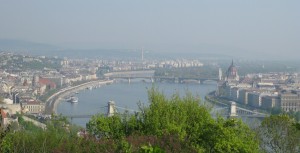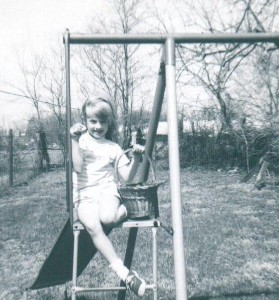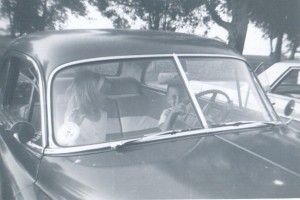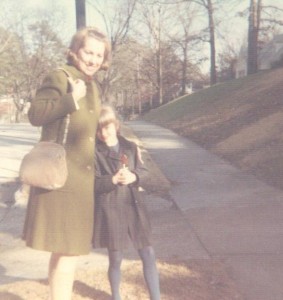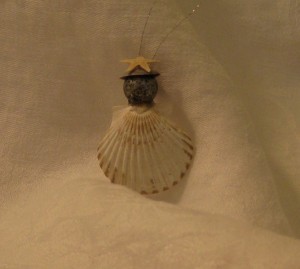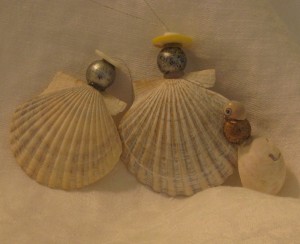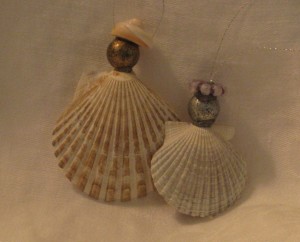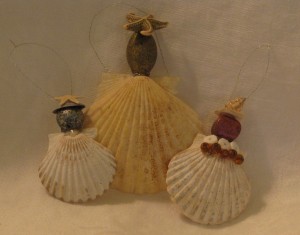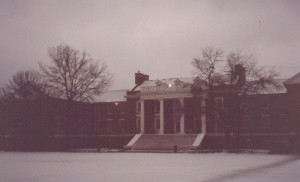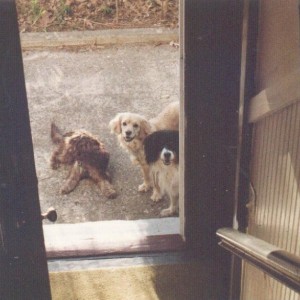I still find it hard to believe that a little over a year ago, my daughter, my parents and I were on our way to Budapest. We had decided, uncharacteristically, to use spring break for a Danube River cruise. Typically, we go no place more exotic than Atlanta during this time. Even more typically, we rest, recharge and sleep late. But the European river cruise was highly recommended by several friends, and we had been considering it for a few years. The time was right, it seemed. None of us, after all, was getting any younger or healthier. The longer we put it off, the more medications we’d have to drag along, and the less sure-footed my parents and I would be on ancient, uneven cobblestones and cathedral steps.
My husband opted out, as I had expected. He likes to remind us that he doesn’t get a spring break. He had accompanied me and my parents on a trip to France when our daughter was three. One European vacation with the in-laws, he decided, was sufficient. The river cruise, with its set itinerary, didn’t appeal to him; he preferred a more free-ranging vacation. Had he come, we would have needed another stateroom on the ship, or a suite. Traveling in uneven numbers isn’t ideal for river cruises.
The previous September, when I had asked my parents about the Danube cruise, they responded enthusiastically. I had found what looked like the perfect trip, with a stop in Regensburg, where Daddy had been stationed with the American occupational forces after World War II. His time in Germany had been cut unexpectedly short, when his father died suddenly. Daddy had not returned, and he was beginning to think he never would. While Mama, a dedicated Anglophile, would have preferred another trip to England, she was fine with Germany. My daughter’s top vacation choice would have been a bustling Caribbean cruise, but she was happy to be going to Europe for the first time. I looked forward especially to accompanying my father to Regensburg, an unspoiled medieval town that was spared wartime damage. I loved it that he would be returning with his wife, daughter and granddaughter.
As the departure date approached, my excitement gave way to anxiety. I would have worried less if my husband had been coming with us. While we disagree about the highlights of travel (I prefer historical sight-seeing, he goes for action and adventure), he has a gift for keeping a clear head and making good decisions when adversity arises. As Mama once noted, while H drove us calmly out of Paris, after negotiating various bewildering aspects of French bureaucracy at the airport and rental car agency, he would be a formidable contestant on The Amazing Race. Not long after we had begun dating, we were on our way to Newark Airport in my VW Rabbit, when it broke down on Route 1. I was headed to Michigan for a friend’s wedding. H spotted the office of a car service, persuaded the owner to awaken the off-duty driver (her son), and got me back on the road in no time. As I waved goodbye to H, who waited beside the Rabbit for a tow truck, I had complete confidence that he and the car would make it back to Princeton safely. From that moment, I began to see his potential as a permanent feature in my life.
Without H on this upcoming trip, I would be the Adult in Charge, and that was frightening. It had been nearly ten years since I was in Europe, but, as I tried to remind myself, I was no travel neophyte. I had spent a summer in France during college, and as a grad student I had become accustomed to traveling throughout Europe, with friends, family, even alone. I had enjoyed it. I had not been riddled with misgivings. As for my parents, they are sturdy and capable travelers. They visited me during the year I lived in England, and we zipped around the countryside for three weeks in a rented red Ford Escort. We explored out-of-the-way castles and hard-to-reach ruins that only the locals knew about.
But we were all younger then. So much younger, it appears, when I see the photos from those trips. Still, none of us is ancient, doddering or especially fragile, and we have my daughter to help us. Even as a baby, she was a spirited and adventurous traveler. While fellow airline passengers crossed themselves during bouts of turbulence, she was all smiles, clapping her chubby hands and yelling “Whee!.” She had grown into a highly competent traveling companion. Like most of her peers, she has a facility for technology. She is her father’s daughter, and she would be a good stand-in for him. We would be fine, I told myself over and over. We would have a wonderful trip.
But then again, what if? What if one or more of us got sick? What if someone fell or met with an accident? I remember taking a flying fall on the marble steps of a Renaissance church in Italy. I couldn’t afford to do that now. What if my parents’ passports, which expired in five months instead of the recommended six, led to some difficulty? This point caused me extreme consternation, and after many calls to various European embassies that should have eased my mind, I was still worried. What if, after all these plans, we couldn’t make this trip? Or what if we did, and disaster struck? What if, what if. . .. The what ifs were exhausting me.
Meanwhile, in Atlanta, similar worries dogged my parents. Our family tends to make plans eagerly for a date that appears comfortingly far-off. As the actual event nears, the second-guessing starts. It’s tempting to say, “Oh, never mind. Let’s just stay home.” Stay safe, be comfortable, avoid the risk.
But the time was ticking by, and it looked like this trip was going to happen. The day arrived when Mama and Daddy drove up from Atlanta, healthy and looking good. We would be flying overseas together, first to Munich, followed by a short connecting flight to Budapest. I expected that once we were on the plane, my worries would vanish. The river cruises cater to a predominately elderly clientele because so many of the usual travel worries simply disappear. We would be in the capable hands of the Viking River Cruise staff. The ship would be our well-equipped floating hotel. On land, we would, no doubt, be herded onto “motor coaches” like preschoolers on a field trip, but unlike H, I was fine with that.
The weeks of worry were at an end. We would soon be flying to Hungary.
